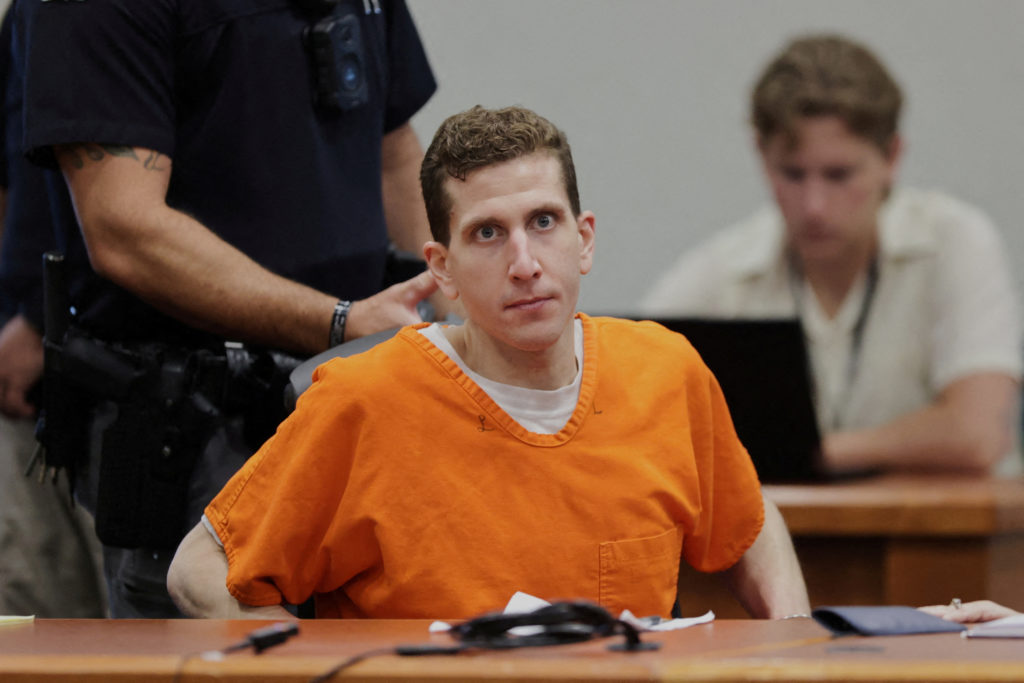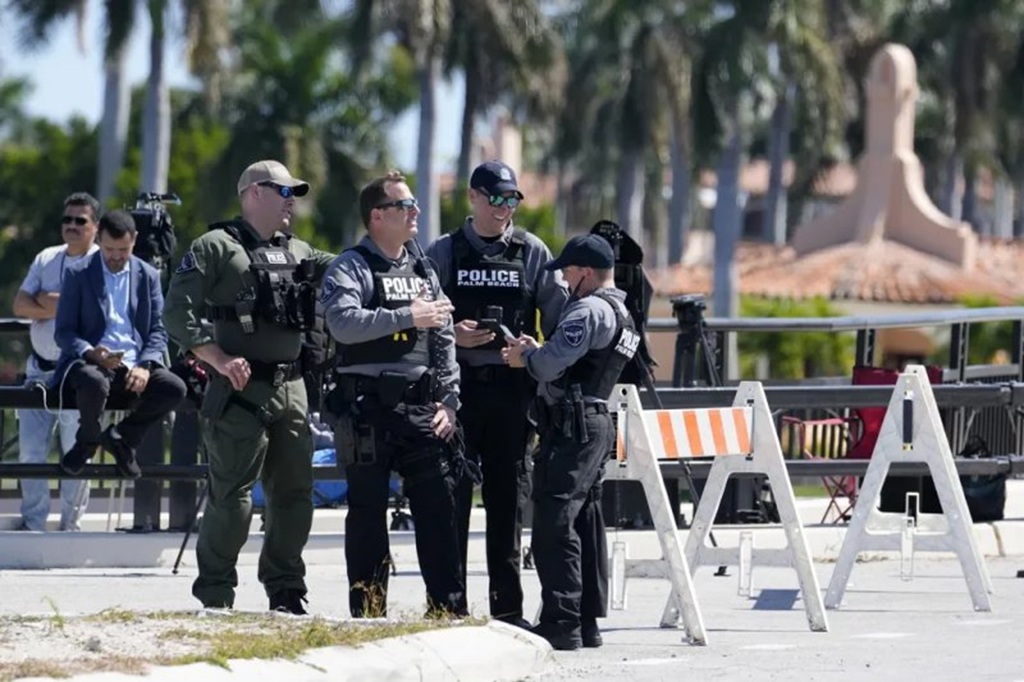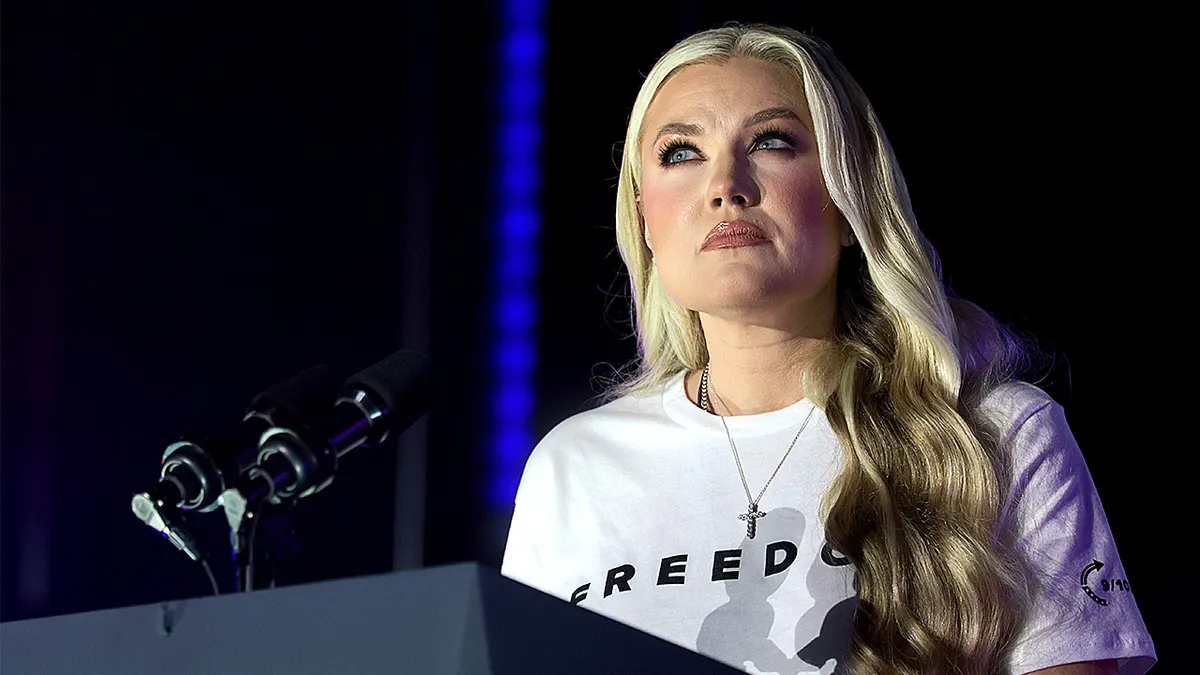Crime
Bryan Kohberger Receives Four Life Sentences for Idaho Student Killings

BOISE, Idaho — In a crowded Ada County Courthouse, Bryan Kohberger, the former Ph.D. criminology student found guilty of killing four University of Idaho students in 2022, was given four consecutive life sentences without parole.
The sentence followed a plea agreement that took the death penalty off the table, closing a legal process that stretched nearly three years. The murders, which drew national attention, forever altered the small university town of Moscow, Idaho.
During the sentencing, the courtroom was filled with emotion as families shared their pain, Judge Steven Hippler called out the cruelty of the acts, and the community faced the challenge of moving forward while many questions about Bryan Kohberger’s motive still linger.
Bryan Kohberger’s Crime That Stunned the Country
On November 13, 2022, Kaylee Goncalves (21), Madison Mogen (21), Xana Kernodle (20) and Ethan Chapin (20) were stabbed to death in a rental home near campus. It was the town’s first homicide in five years. Two roommates, Bethany Funke and Dylan Mortensen, survived.
Mortensen later told police she saw a masked man with “bushy eyebrows” in the house the night of the attack. The case quickly grew in the public eye, leading to an intense seven-week search. Kohberger was arrested at his parents’ home in Pennsylvania on December 30, 2022.
DNA on a KA-BAR knife sheath, phone records and video footage of his white Hyundai Elantra all tied him to the murders.
At the time, Bryan Kohberger was a 28-year-old graduate student at Washington State University. He first pleaded not guilty, and a high-profile trial was set for August 2025.
But on July 2, 2025, he changed his plea, admitting guilt to four counts of first-degree murder and one count of burglary. In exchange, prosecutors agreed not to seek the death penalty.
The sentencing hearing on July 23 gave the victims’ loved ones a chance to address Kohberger, while the judge and the community reflected on lasting pain and loss.
Voices of Loss and Strength at Sentencing
The hearing lasted more than three hours, with over a dozen people sharing victim impact statements. Their words painted a strong picture of the lives cut short and the deep wounds left behind.
Friends, relatives and surviving roommates spoke directly to Bryan Kohberger, their voices carrying sorrow, anger and sometimes forgiveness.
Dylan Mortensen, who survived the attack, spoke through tears. She described the heavy anxiety that’s followed her ever since. She said she should have been enjoying life at university and working on her future, but instead had to recover from the worst kind of trauma.
Bethany Funke’s statement, read by a friend, described guilt and fear that have changed her life. She said finding her friends after the attack left a mark that will never go away.
Madison Mogen’s stepfather, Scott Laramie, called Madison a source of joy who loved family above all else. He said the world was better when she was alive. Her grandmother, Kim Cheeley, explained the “debilitating fear” that filled her family after the murders.
She turned to grief classes and other support to help her cope, and told the court that their “world’s foundation fell out” after the tragedy.
Xana Kernodle’s uncle, Stratton, spoke with anger at Bryan Kohberger. He said Bryan Kohberger brought “contamination” to his own family’s name, adding that the shame of these acts would always be his burden to bear. Stratton told the court that Kohberger has to live with that pain.
As the town of Moscow tries to find peace, the impact of this crime is still felt every day. The sentencing closed a chapter, but healing will take time for everyone touched by the tragedy.
Trending News:
The Silent Slaughter: Christian Persecution in Nigeria and Central Africa

Crime
Armed Intruder Killed at President Trump’s Mar-a-Lago

PALM BEACH, Florida – An armed man was shot and killed early Sunday after entering a restricted area at Mar-a-Lago, President Donald Trump’s private club and home in Palm Beach, Florida. U.S. Secret Service agents and a Palm Beach County Sheriff’s deputy fired after the man reportedly lifted a shotgun toward officers.
The shooting happened around 1:30 a.m. on February 22, 2026, near the property’s north gate, after the suspect crossed into a secured zone without permission. Authorities said Trump was not at Mar-a-Lago at the time. He was in Washington, D.C. No one else was hurt.

What Happened at Mar-a-Lago
- Suspect identification: Officials identified the man as Austin Tucker Martin, 21, from the Cameron area (also described as the Carthage area) of North Carolina. Investigators confirmed his name using his driver’s license and other records.
- Items observed: Officers said Martin carried what looked like a shotgun and a fuel can (also described as a gas canister).
- Timeline of events:
- First, the suspect drove into the secured perimeter as another vehicle was leaving.
- Next, two Secret Service agents and a Palm Beach County Sheriff’s deputy confronted him.
- Officers told him to drop what he was holding.
- He put down the fuel can, then raised the shotgun into a firing position.
- At that point, law enforcement opened fire. He died at the scene.
- Officers unharmed: The agents and deputy were not injured.
Palm Beach County Sheriff Ric Bradshaw shared the details at a Sunday morning news conference. He described the suspect as a white man in his early 20s who made it to the “inner perimeter” before officers stopped him.
In a separate statement, the U.S. Secret Service said personnel saw the man near the north gate carrying what appeared to be a shotgun and a fuel can. Communications chief Anthony Guglielmi credited the quick response to the unlawful entry and said agents moved fast to end the threat.

Investigation and What’s Known About the Suspect
Federal and local investigators, including the FBI, are working to determine why the suspect entered the property and what he planned to do. Reports also say Martin’s family had recently reported him missing, which investigators are reviewing as part of the timeline.
So far, authorities have not released evidence that the breach was tied to a direct threat against the president. Still, the combination of a firearm and a fuel can has raised alarms. Investigators are also looking into Martin’s travel from North Carolina and whether anyone helped him plan or prepare.
The case comes during a period of increased attention to security around Trump after earlier incidents, including assassination attempts in 2024. Mar-a-Lago is considered one of the most heavily protected private properties in the country, with Secret Service procedures layered across gates, patrols, and monitoring systems.

President Trump’s Status and Response
By Sunday afternoon, President Trump had not made a public statement about the Mar-a-Lago incident, according to reports from outlets including The New York Times and the Associated Press. White House officials said he was briefed while in Washington, D.C.
In past security situations, Trump has spoken positively about Secret Service performance and training. For now, no direct comments from Trump on this shooting were available at the time of reporting. More information may follow once the White House issues a formal response.
Why the Mar-a-Lago Breach Matters
- Security at presidential properties: Mar-a-Lago has multiple layers of protection because it remains a frequent destination connected to Trump.
- Concerns about political violence: The shooting highlights ongoing risks in a tense political climate, similar to prior threats involving Trump.
- Public reaction: Early reports quickly spread online, leading to debate about the suspect’s intent and how the Secret Service handled the Mar-a-Lago breach.
Authorities say the investigation is still active. Since the suspect died at the scene, no charges will be filed in this case.
Related News:
Trump Fires Back at Supreme Court with New 10% Global Tariffs
Crime
Erika Kirk Faces Renewed Grooming Allegations Over 2014 Messages

LOS ANGELES – After her husband Charlie Kirk’s assassination in September 2025, Erika Kirk stepped into two top roles at Turning Point USA (TPUSA), serving as CEO and chairwoman of the conservative youth group he co-founded.
Now, about six months into her tenure, she’s facing a fast-moving online backlash. Screenshots said to show flirtatious, personal messages she sent to a 15-year-old girl in 2013-2014 have resurfaced, leading to grooming accusations and criticism, including from some conservative voices.
The claims gained traction again in early February 2026 and have spread across social media, conservative podcasts, and online news coverage. Commentator Candace Owens has weighed in publicly, calling the alleged exchanges “textbook grooming behavior” and pointing to other claims involving gifts and photography.
How Erika Kirk Rose to the Top at TPUSA
Erika Kirk, 37, formerly Erika Frantzve, first drew national attention after winning Miss Arizona USA in 2012. She graduated from Liberty University and built a public faith-focused brand. Over time, she hosted devotional podcasts, ran Bible studies, and launched a faith-based clothing line and nonprofit called Everyday Heroes Like You.
She married Charlie Kirk in 2021. Together, they often spoke about conservative priorities, family life, and youth activism. After Charlie’s death, TPUSA’s board unanimously named her CEO and chairwoman. In public remarks, including her memorial eulogy, she said she planned to continue his work and urged unity and love after the tragedy.
Still, her early months in charge have brought extra attention. Coverage has mentioned staff firings, questions about TPUSA’s direction, and personal choices, including reports that a wedding photo was removed from Charlie’s office. A TPUSA source said practical concerns tied to her young child drove that decision.
What the Allegations Say
The dispute centers on alleged text messages from more than a decade ago, when Erika was about 25 and using her maiden name. The screenshots, shared widely on X (formerly Twitter), Instagram, and Facebook, show messages addressed to a girl described as 15 at the time. Some posts identify the teen as Jillian or Jill Falkon.
People circulating the screenshots and related claims point to:
- Comments about the teen’s appearance, including mentions of her “eyes,” “lips,” “skin,” and calling her a “dime piece.”
- Pet names, such as “sweetheart.”
- Jokes and remarks that read as unusually personal or familiar.
- Claims that gifts were sent to the minor, including chocolate-covered strawberries and a handwritten birthday card.
- References to a photo shoot or similar interaction, which has fueled debate about consent and whether parents were involved.
Critics say the tone and age gap make the messages inappropriate for adult-to-teen communication. Owens amplified the story in posts and a video, calling the behavior strange and crossing lines. She also raised concerns about photographing minors, depending on consent rules in certain states.
Posts describing the teen’s account say it appeared youth-focused at the time. According to online chatter, the messages first spread years ago in political and internet drama circles, then surfaced again more recently.
What’s Confirmed, and What Isn’t
As of February 2026, the claims remain unverified. No independent proof has publicly confirmed the screenshots, such as metadata checks, verified timestamps, or device records. Kirk has not made a direct public statement that addresses the specific screenshots or clearly denies that they are real.
Most coverage labels the story as “alleged” and points out that the posts went viral without outside verification. At this time, there are no reported criminal charges or civil lawsuits tied to the alleged messages.
Supporters argue that key context is missing. For example, they say the relationship could have involved mentorship, activism, modeling, or a casual online connection. Some also claim the tone looks like over-the-top praise without sexual intent. On the other hand, critics say the messages feel inappropriate either way.
Meanwhile, the timing has added fuel. The renewed attention comes during broader tension in conservative media, including reported rifts involving figures such as Owens. Because of that, some people view the controversy as part of personal or political feuds, not just a stand-alone dispute.
What This Could Mean for TPUSA and the Conservative Movement
Turning Point USA often speaks out against what it calls grooming and harmful influences on young people, especially in schools and culture. Because of that, critics have used the allegations against its leader to accuse the group of hypocrisy and to call for accountability.
TPUSA continues to run campus programs, host major events like AmericaFest, and push youth outreach under Kirk’s leadership. Supporters point to her faith-based message and family values. Critics, however, question the organization’s stability as controversies stack up.
For now, the resurfaced grooming allegations pose a serious test for Erika Kirk and TPUSA. Old messages can reappear quickly and reshape public perception overnight. Whether these claims are proven, debunked, or left unresolved will likely determine how lasting the fallout becomes.
Related News:
Erika Kirk’s Early EMP Documentary Fuels CIA Grooming Rumors
Crime
Ohio Man Charged Over Alleged Death Threat Against Vice President JD Vance
Federal prosecutors say an online message threatened to shoot Vance with an M14 during an Ohio stop, agents also reported finding child sexual abuse materials on the suspect’s devices

TOLEDO, Ohio – A 33-year-old Toledo man is facing federal charges after authorities say he threatened to kill Vice President JD Vance ahead of a January visit to northwest Ohio. Investigators say the case widened after a search turned up multiple digital files described as child sexual abuse materials (CSAM), bringing separate accusations tied to receipt and distribution.
Federal grand jurors in the Northern District of Ohio indicted Shannon Mathre this week. He is charged with one count of threatening to kill or inflict bodily harm on a successor to the presidency, under 18 U.S.C. § 871(a). The U.S. Secret Service arrested Mathre on February 6, 2026, after the indictment was returned.
Court filings and Justice Department statements say the threat was posted or sent on or about January 21, 2026. That was one day before Vice President Vance was set to attend a public event in the Toledo area. The indictment quotes Mathre as saying: “I am going to find out where he (the vice president) is going to be and use my M14 automatic gun and kill him.”
Federal officials say they moved quickly after the alleged threat surfaced, reviewing Mathre’s online activity and looking into whether he had the intent to act. During the arrest and search, agents seized a Samsung phone and other devices. A forensic review allegedly found several files showing minors engaged in sexually explicit conduct.
Ohio Grand Jury Charges
The grand jury also charged Mathre with receipt and distribution of child pornography under 18 U.S.C. § 2252(a)(2). Prosecutors allege the conduct occurred between December 31, 2025, and January 21, 2026, which overlaps with the time frame of the alleged threat. Federal agencies often use the term CSAM to stress that the content documents abuse.
Deputy Attorney General Todd Blanche addressed the case in a post on X (formerly Twitter). He said that while arresting Mathre for the alleged threat against the vice president, federal law enforcement also found child sexual abuse materials in his possession.
Mathre appeared in federal court after his arrest and pleaded not guilty. His lawyer, Neil McElroy, told reporters that Mathre’s health problems make it unlikely he could have carried out a real-world attack. A judge ordered him held at the Lucas County Corrections Center while he awaits a detention hearing later this week.
The charges arrive as security teams face a steady stream of online threats aimed at public officials. Vance, a former Ohio senator and the author of Hillbilly Elegy, has had other recent security-related incidents tied to his name.
Authorities said January included separate cases, including a California man accused of making threats during a Disneyland visit and an Ohio man accused of damaging windows at Vance’s Cincinnati-area home.
Federal prosecutors say threats against the president, vice president, and others in the line of succession are treated as serious crimes, even when a suspect may not seem able to follow through. The threat charge carries a maximum sentence of five years in prison and a $250,000 fine. The child pornography count carries up to 20 years in prison and the same maximum fine.
Disbelief and Anger in Ohio
The U.S. Secret Service, which handles protective investigations involving threats against protectees, did not share details about how the alleged threat was first identified, citing the ongoing case. In many investigations, such leads can come from public tips, platform reports, or other monitoring that flags threatening content.
Legal experts say it is common for additional crimes to surface once investigators start reviewing a suspect’s devices and accounts. One former federal prosecutor, speaking anonymously, said that when agents track a person’s digital trail for one allegation, they sometimes uncover evidence of other offenses. The child exploitation charges, the prosecutor added, tend to raise public concern because they involve harm to children.
In Toledo, reactions have ranged from disbelief to anger. Online posts on Reddit and X have included calls for quick prosecution, along with political speculation. Authorities have not said the threat was part of a larger plan or linked to an organized group.
As the case moves forward, prosecutors are expected to rely on evidence pulled from Mathre’s devices, including communications, timestamps, and metadata tied to the alleged threat and the CSAM-related counts. No trial date has been set.
The Justice Department said it will continue to pursue cases involving threats against public officials and crimes involving the exploitation of children. The investigation remains active.
Related News:
JD Vance Exposes Walz’s Fraud and CNN’s Lies in White House Presser
-

 Crime2 months ago
Crime2 months agoYouTuber Nick Shirley Exposes BILLIONS of Somali Fraud, Video Goes VIRAL
-

 China1 month ago
China1 month agoChina-Based Billionaire Singham Allegedly Funding America’s Radical Left
-

 Politics2 months ago
Politics2 months agoIlhan Omar Faces Renewed Firestorm Over Resurfaced Video
-

 Politics3 months ago
Politics3 months agoIlhan Omar’s Ties to Convicted Somali Fraudsters Raises Questions
-

 News3 months ago
News3 months agoWalz Tried to Dodges Blame Over $8 Billion Somali Fraud Scandal
-

 Crime3 months ago
Crime3 months agoSomali’s Accused of Bilking Millions From Maine’s Medicaid Program
-

 Crime3 months ago
Crime3 months agoMinnesota’s Billion Dollar Fraud Puts Omar and Walz Under the Microscope
-

 Business2 months ago
Business2 months agoTech Giant Oracle Abandons California After 43 Years


























